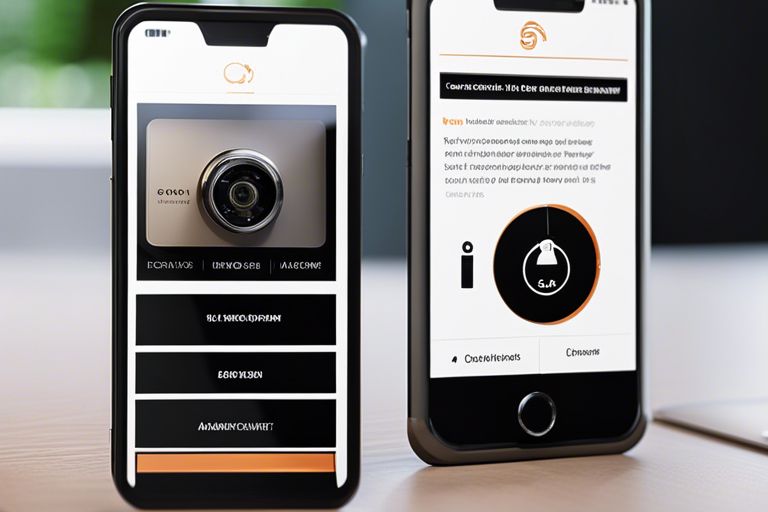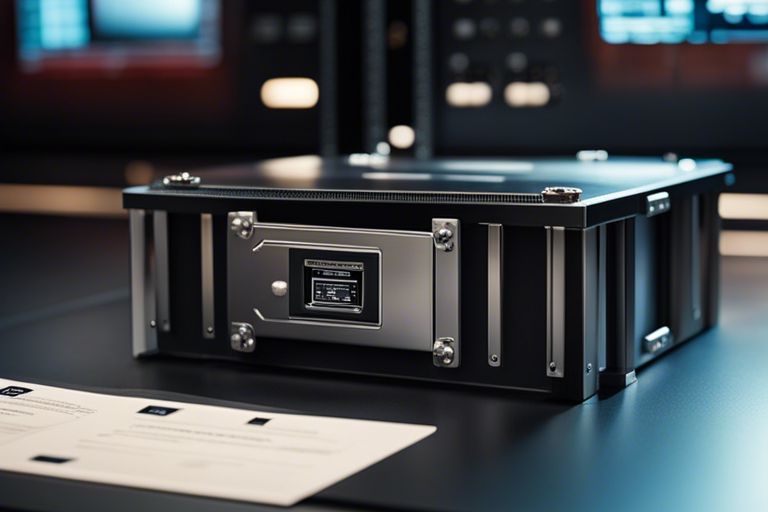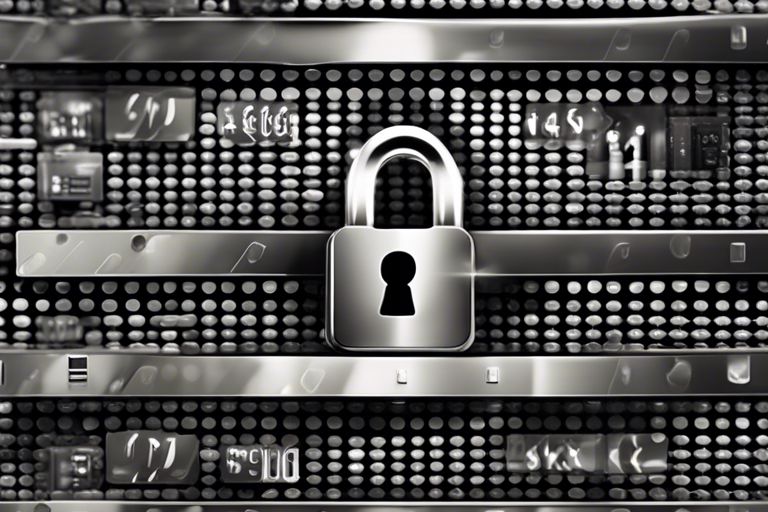Many cryptocurrency users like yourself may be wondering how to enhance the security of your digital assets. In this article, we will explore five imperative security tools that can help you protect your cryptocurrency investments. From hardware wallets to two-factor authentication apps, these tools are designed to keep your funds safe from cyber threats. Let’s dive in and learn how you can safeguard your crypto holdings with these top security solutions.
Key Takeaways:
- Use Hardware Wallets: Hardware wallets are one of the most secure ways to store your cryptocurrency keys offline.
- Enable Two-Factor Authentication (2FA): Using 2FA adds an extra layer of security to your accounts by requiring a second form of verification.
- Employ VPNs for added security: Virtual Private Networks (VPNs) can help protect your online activities and enhance your overall security when engaging in cryptocurrency transactions.
The Importance of Security in Cryptocurrency
The Risks of Cyber Attacks
With the rise of cryptocurrency, the digital landscape has become a prime target for cyber attacks. Hackers are constantly seeking vulnerable points to exploit and steal funds. As a cryptocurrency user, you are at risk of various types of cyber threats such as phishing scams, malware attacks, and hacking incidents. These attacks can result in the loss of your digital assets and compromise the security of your personal information.
The Consequences of Data Breaches
On top of the financial loss that can occur due to cyber attacks, data breaches can have far-reaching consequences for cryptocurrency users. Your private information, including account details and transaction history, can be exposed to malicious actors. This not only jeopardizes your financial security but also puts your identity at risk of theft and misuse.
Data breaches can lead to a loss of trust in the cryptocurrency ecosystem as a whole. When users’ information is compromised, it creates a ripple effect that can damage the reputation of cryptocurrency platforms and undermine the confidence of investors and traders. It is crucial to prioritize security measures to safeguard your digital assets and personal data from potential breaches.
Top 5 Security Tools for Cryptocurrency Users
Clearly, security is paramount when it comes to managing your cryptocurrency. To ensure the safety of your digital assets, it’s important to utilize the right tools. For a comprehensive guide on important security tools for Bitcoin users, check out 10 Must-Have Security Tools for Bitcoin | by Sean McNamara.
Tool #1: Hardware Wallets
For the utmost security of your cryptocurrency, hardware wallets are a must-have. These physical devices store your private keys offline, making them less vulnerable to hacking attempts. By keeping your keys offline, hardware wallets protect your assets even if your computer or mobile device is compromised.
Tool #2: Two-Factor Authentication (2FA)
Tool #2: Two-Factor Authentication (2FA)
Implementing Two-Factor Authentication (2FA) adds an extra layer of security to your accounts. By requiring a second form of verification, such as a code sent to your mobile device, 2FA makes it significantly harder for hackers to access your accounts.
Two-Factor Authentication (2FA) is a simple yet effective method to enhance your account security. Enabling this feature on your exchanges, wallets, and other cryptocurrency-related accounts can provide an additional barrier against unauthorized access.
Tool #3: VPN Services
To safeguard your online activities and protect your sensitive information while using cryptocurrency, investing in a Virtual Private Network (VPN) service is crucial. By encrypting your internet connection and masking your IP address, VPNs prevent third parties from monitoring your online behavior and accessing your data.
For instance, when conducting crypto transactions on public Wi-Fi networks, using a VPN adds an extra layer of security by creating a secure tunnel for your data to travel through. This helps protect your financial information from potential cyber threats lurking on unsecured networks.
Tool #4: Anti-Malware Software
Tools #4: Anti-Malware Software
With the increasing number of malware threats targeting cryptocurrency users, having robust anti-malware software is important. These programs can detect and remove malicious software designed to steal your digital assets or compromise your sensitive information.
With the rise of cryptojacking and ransomware attacks, investing in reputable anti-malware software is a proactive step to safeguard your digital assets. Regularly scan your devices for malware and keep your software updated to stay protected against the latest threats.
Tool #5: Password Managers
With the multitude of accounts and passwords to manage in the cryptocurrency world, using a password manager can help you secure and organize your login credentials effectively. Password managers generate strong, unique passwords for each of your accounts and store them in an encrypted vault, eliminating the need to remember multiple complex passwords.
Services like LastPass, Dashlane, or Bitwarden offer secure password management solutions that simplify the process of securing your accounts. By using a password manager, you can enhance the security of your cryptocurrency holdings and reduce the risk of falling victim to password-related attacks.
How to Choose the Right Security Tool
Evaluating Your Security Needs
Security is paramount when dealing with cryptocurrency. To ensure the safety of your digital assets, you must first evaluate your specific security needs. Consider factors such as the amount of cryptocurrency you own, how frequently you trade, and whether you prefer hot or cold storage. By understanding your unique requirements, you can select a security tool that aligns with your priorities.
Researching and Comparing Tools
In terms of safeguarding your cryptocurrency, the market offers a range of security tools to choose from. To find the right one for you, conduct thorough research and compare the features of different tools. Look for factors such as encryption methods, multi-factor authentication, ease of use, and customer support. By comparing these aspects, you can select a security tool that best fits your needs.
Right Security Tool
| Evaluating Your Security Needs | Researching and Comparing Tools |
Before exploring into the world of cryptocurrency security tools, take the time to evaluate your specific security needs. Understanding what you require will help you narrow down your choices and find the tool that offers the features you need to feel secure in managing your digital assets.
Reading Reviews and Ratings
One way to gauge the effectiveness of a security tool is by reading reviews and ratings from other cryptocurrency users. These insights can provide valuable information about the tool’s performance, reliability, and user satisfaction. By considering the experiences of others, you can make a more informed decision when selecting a security tool for your cryptocurrency.
Researching and Comparing Tools
| Reading Reviews and Ratings | Comparing Features and Performance |
Reading reviews and ratings from other cryptocurrency users can give you a sense of how well a security tool performs in real-world scenarios. By taking the time to research and evaluate these insights, you can make a more educated choice about which tool will best suit your security needs.
Best Practices for Using Security Tools
Staying Up-to-Date with Software Updates
For your cryptocurrency security, it is important to stay vigilant and regularly update the security tools you use. By keeping your security software up-to-date, you ensure that you are protected against the latest threats and vulnerabilities. Make sure to regularly visit Top 5 Crypto Security Companies To Reduce Risk to check for any updates or patches for your security tools.
Using Strong and Unique Passwords
An important aspect of safeguarding your cryptocurrencies is by employing strong and unique passwords for all your accounts. Ensure that your passwords are a combination of numbers, special characters, and both upper and lower-case letters. Avoid using the same password for multiple accounts to prevent a security breach.
Strong and Unique Passwords: Using strong and unique passwords is crucial to protect your cryptocurrency assets. Consider utilizing password managers to help generate and store complex passwords securely. This extra layer of protection can significantly reduce the risk of unauthorized access to your accounts.
Avoiding Phishing Scams and Suspicious Links
With the rise of cyber threats targeting cryptocurrency users, it is crucial to be cautious when interacting with online content. Avoid clicking on suspicious links or sharing personal information with unverified sources. Phishing scams can trick you into revealing sensitive data or accessing malicious websites that can compromise your cryptocurrency holdings.
It is paramount to verify the legitimacy of sources before sharing any personal information or clicking on links. Be cautious of unsolicited emails or messages that request sensitive details or prompt urgent actions. By staying vigilant and avoiding phishing scams, you can significantly enhance the security of your cryptocurrency investments.
Common Mistakes to Avoid
Not Using 2FA
With the increasing number of cyber threats targeting cryptocurrency users, it is necessary to take all necessary precautions to secure your funds. One common mistake to avoid is not utilizing two-factor authentication (2FA) for your accounts. By enabling 2FA, you add an extra layer of security that requires a second form of verification, such as a code sent to your phone or email, in addition to your password.
Using Weak Passwords
An important aspect of securing your cryptocurrency holdings is setting strong and unique passwords for your accounts. Using weak passwords, such as common phrases or easily guessable combinations, can make it easier for hackers to gain access to your funds. It is crucial to create complex passwords containing a mix of letters, numbers, and special characters to enhance the security of your accounts.
Passwords are the first line of defense in safeguarding your digital assets. By using weak passwords, you are leaving your accounts vulnerable to brute-force attacks and password cracking methods. To protect your cryptocurrencies effectively, ensure that your passwords are long, unique, and not reused across multiple accounts.
Not Keeping Software Up-to-Date
Weaknesses in software or applications used for managing your cryptocurrency wallets can be exploited by cybercriminals to compromise your funds. Not keeping your software up-to-date is a common mistake that can leave you vulnerable to known security vulnerabilities. It is crucial to regularly update your wallet software, operating systems, and security tools to protect against potential threats.
Using outdated software exposes you to security risks that have already been identified and patched by developers. By keeping your software up-to-date, you ensure that you have the latest security patches and enhancements that can help prevent unauthorized access to your cryptocurrency holdings.
Advanced Security Measures
All cryptocurrency users should consider implementing advanced security measures to protect their digital assets. Below are some key strategies to enhance the security of your cryptocurrency holdings:
-
Using Multi-Signature Wallets
What:
A multi-signature wallet requires multiple private keys to authorize a transaction, adding an extra layer of security.Why:
It reduces the risk of unauthorized access or theft since an attacker would need to compromise several keys.
Wallets
By using a multi-signature wallet, you can distribute the control of your funds among different parties or devices, making it significantly harder for a malicious actor to gain access to your digital assets. This advanced security measure is highly recommended for anyone looking to secure their cryptocurrency holdings effectively.
Implementing Cold Storage
MultiSignatureCold storage involves keeping your private keys completely offline, away from any internet connection. This method provides an added layer of protection against online hacking attempts.
This advanced security measure is especially useful for storing large amounts of cryptocurrency for long periods, as it minimizes the risk of theft through online attacks. By keeping your private keys offline, you can effectively safeguard your digital assets from potential cyber threats.
Conducting Regular Security Audits
One crucial aspect of maintaining the security of your cryptocurrency holdings is conducting regular security audits. By reviewing your security protocols and practices periodically, you can identify any potential vulnerabilities and take steps to address them proactively.
Advanced security measures such as multi-signature wallets, cold storage, and regular security audits can significantly enhance the safety of your cryptocurrency investments. It is crucial to stay informed about the latest security best practices and continuously assess and improve your security measures to protect your digital assets effectively.
Summing up
Ultimately, securing your cryptocurrency assets is of utmost importance in the digital age. By utilizing the top 5 security tools outlined in this article, you can significantly reduce the risk of falling victim to cyber attacks and theft. Recall, safeguarding your private keys, using hardware wallets, setting up two-factor authentication, employing antivirus software, and staying informed about the latest security threats are necessary practices for any cryptocurrency user.
FAQ
Q: What are the top 5 security tools for cryptocurrency users?
A: The top 5 security tools for cryptocurrency users are hardware wallets, password managers, two-factor authentication (2FA), antivirus software, and VPNs.
Q: Why is it important for cryptocurrency users to use security tools?
A: Cryptocurrency transactions are irreversible and anonymous, making them attractive targets for hackers. By using security tools, users can protect their digital assets and personal information from cyber threats.
Q: How do hardware wallets enhance security for cryptocurrency users?
A: Hardware wallets are physical devices that store the private keys needed to access and manage cryptocurrency. Since they are offline and immune to cyber attacks, hardware wallets provide a secure way to store and protect digital assets.






